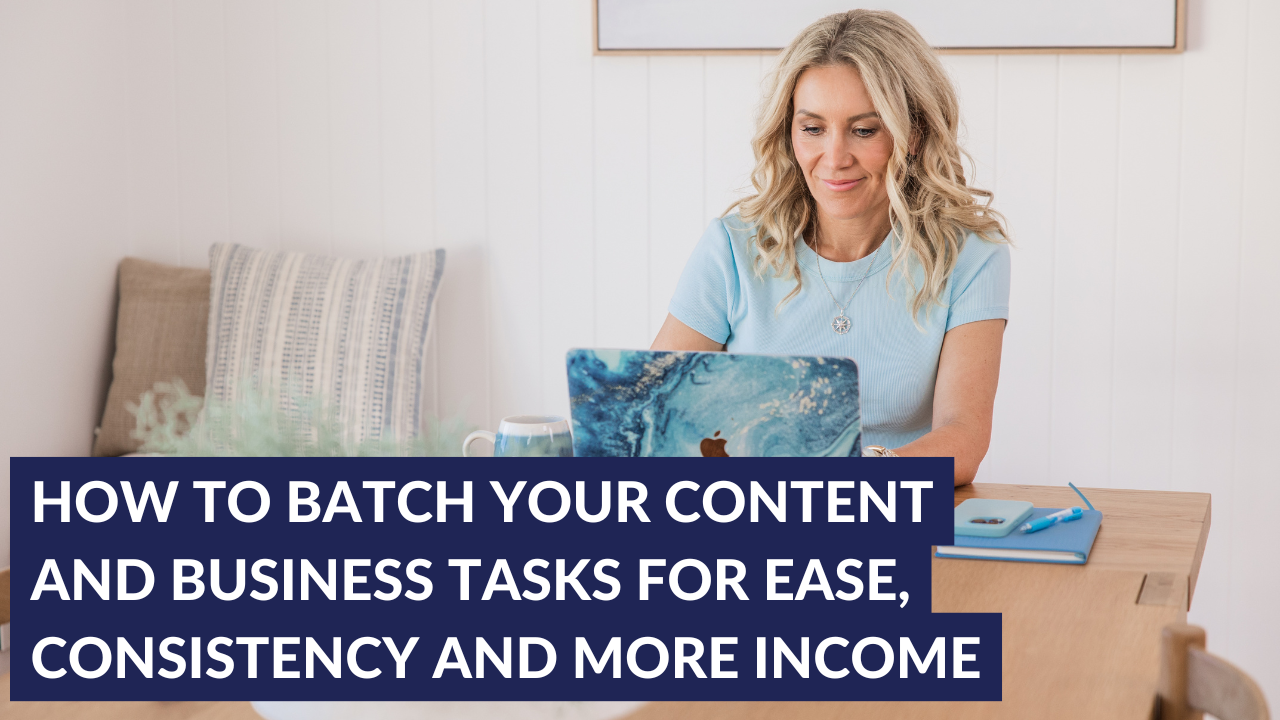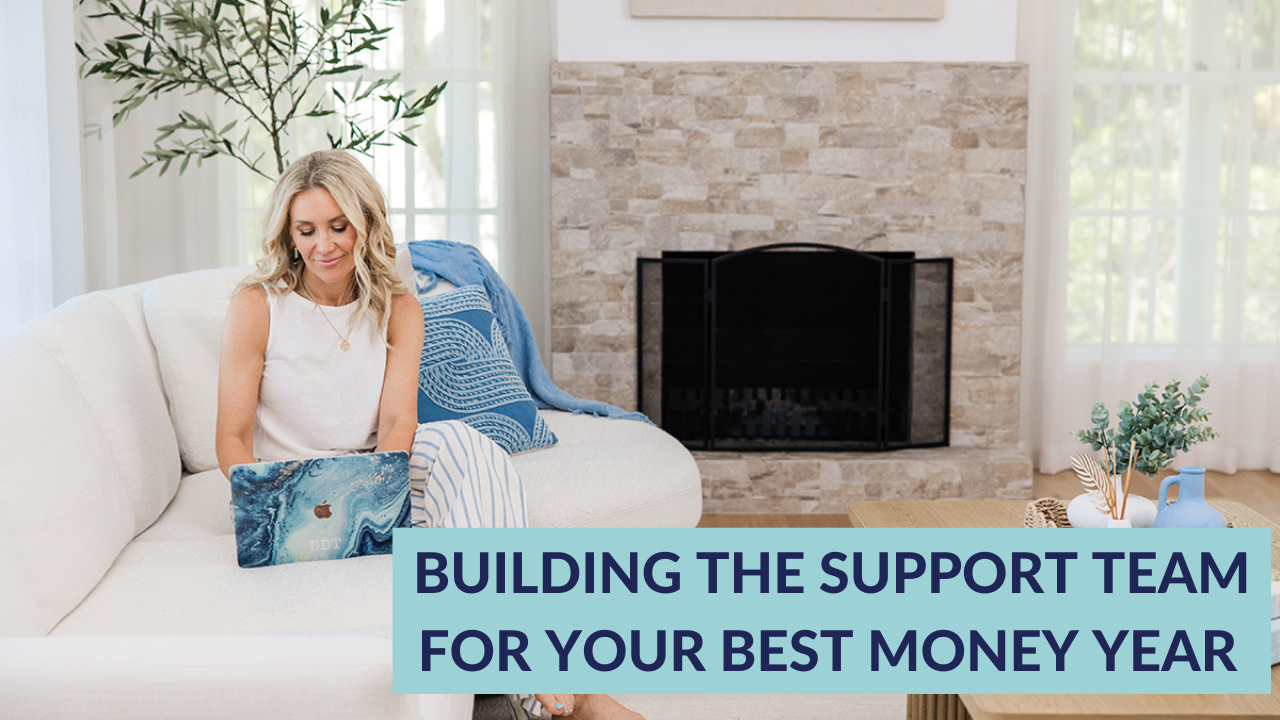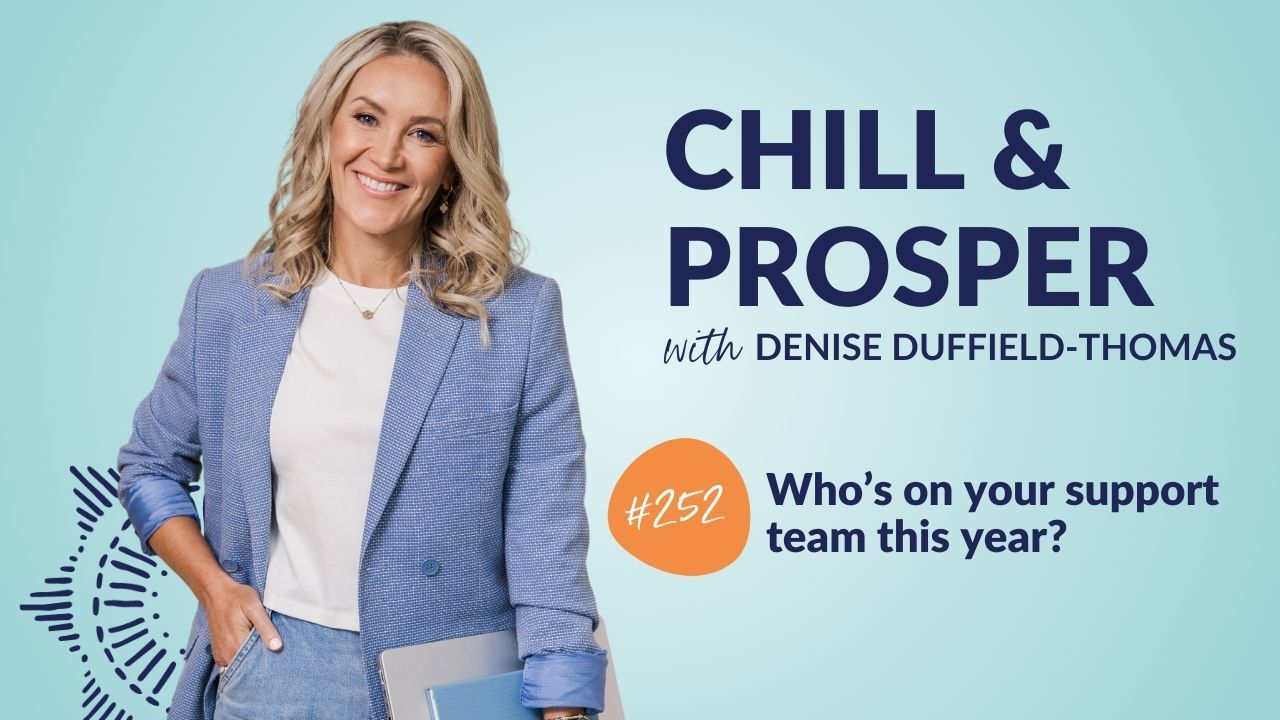Pricing Mistake 4: Taking ‘You’re Too Expensive’ Personally

Hey gorgeous,
I'm Denise Duffield-Thomas, money mindset mentor, author and founder of The Money Bootcamp.
Today we’re talking pricing and another one of the big mistakes I see entrepreneurs make - taking it personally when someone says you're expensive.
A tenet of the Chillpreneur philosophy is to “take nothing personally.“
You have to give up the illusion that there’s a perfect price and that you can avoid criticism when you find it.
You can't please everyone.
It feels horrible when you have the perfect solution for clients but they tell you flat-out that they can’t afford it.
That’s when women feel shame around their pricing, decide they’re being too greedy, and give discounts or concessions to fit into a potential client’s budget.
But “expensive“ is a relative term: Something that one person sees as obscenely expensive can seem dirt-cheap to someone else.
Nowadays, I’m much more chill about hearing someone say I’m too expensive because I know I’m just out of their budget at that particular moment.
It also might mean they can afford it but just don’t want to spend the money.
Or that I need to do some work on my sales page to better showcase my value.
You’ll see people say no to your very reasonable quote because they “can’t afford it“ and then see them spend money on something totally ridiculous the next week.
It’s not your business what people value or spend money on, and you don’t have to change your pricing to meet their financial expectations.
It’s just a mismatch of budget, money mindset, or values—not a moral failing on your part.
Your pricing is not a literal translation of your value as a human being. Money is just money. A price is just a price.
Having said that, yes, you can price too high.
That might sound weird coming from a money mindset mentor, but I don’t want to BS you.
For example: You can price too high for your ideal client.
If you’ve consciously chosen a target market that’s on a low or fixed income, your prospective clients probably won’t have the money to pay premium rates.
They’re likely to be too busy just trying to make ends meet.
So, it’s a trade-off.
A lot of women confuse their business with their charitable giving because they want so much to help a particular type of person.
There’s nothing wrong with that.
But you have to be the right match price-wise with your target client, and you have to have the right business model to support it.
You can also set your price too high for your client’s business level.
I don’t often recommend that brand-new entrepreneurs work with super-high-end coaches because they’re rarely in a place to get immediate value for their money.
For example, I’ve seen newbies get flustered when they receive advice about how to up-level their business or create high-end branding when they don’t even have the basics in place.
It’s okay to work with someone in line with where they’re at.
I once invested $7,000 for an intimate group business day with a high- end coach.
Half the room thought it was worth the money, and the other half felt like it was a big rip-off.
What was the difference? Half were six-figure business owners and the rest had million-dollar businesses.
We all heard the same advice, but it was mostly applicable to the million-dollar half of the room.
Not because we were smarter (far from it).
It’s just that, at that point in our business journey, the advice we received was more useful to us and had a quicker return on investment.
We got the same information, we paid the same price, but we experienced completely different value.
What do you think when someone is “cheap? “And remember, cheap is relative.
What you consider cheap might feel expensive to someone else and vice versa.
When people’s prices seem too low, we often think they’re just starting out or are inexperienced in business.
I know I do.
Are you giving that perception with your current prices?
Do they make you look like a beginner? Or someone who is insecure about their worth?
When people charge too little, it doesn’t automatically mean they’re inexperienced or bad at what they do, but it makes me second-guess working with them because I’m often suspicious of their price and the value I’ll get in return, especially when I know that it often indicates unresolved money blocks.
In my experience, that causes problems for me, like the supplier being slow to invoice (even when asked repeatedly), they will often over-deliver in a way that’s not always useful (like taking longer to complete work) or be timid in taking charge because they aren’t in their true power.
I can feel their money “stuff” leaking into every interaction and it makes me feel uncomfortable, or even like I should coach them, when I want them to take care of me.
As someone with money to spend, I want to work with people who have clean and clear money boundaries, and who don’t buy in to a power dynamic just because I earn more money than they do.
I’m coming to them because of their expertise and how they can help me, not so I can help them.
Quite simply: I like working with people who have worked on their money blocks!
That doesn’t mean they are perfect, but I can tell the difference.
Judging a service by its price doesn’t make you a snooty bitch, by the way.
Recently, we were purchasing a flight for my mother, so she could join us on vacation, and between the two major airlines, there was a $1,000 price difference. No problem, right? Go with the cheaper one.
Not me! I was too suspicious of the price and kept questioning Mark, “Why is it so cheap? Is it an old plane? Is it a terrible seat? Is there a layover?
Why? Why?“ I couldn't figure it out, and it made me not want to buy it because I assumed there would be some horrible catch down the road.
In my experience, when something is suspiciously cheap, it’s usually for a reason!
Whether you're just starting out or an established professional, you don't want to offer the cheapest services in your industry.
If clients say, “You’re so cheap!“ or refer others to you by emphasizing your low prices, take it as a sign that people have a different perception than you do around your worth.
It’s not necessarily a compliment!
Now, let’s look at the flip side.
What do you think when you see someone with “expensive“ pricing?
She must be really good and worth the money!
I’m not saying this is true or fair, but that’s the reality of pricing psychology.
A higher price often gives the perception of experience, mastery, skill, confidence, and higher self-worth.
Here’s another reaction to high pricing:
That’s not for me. Does it feel unfair, exploitative, or exclusionary?
Pricing yourself out of someone’s budget or comfort zone doesn’t make you greedy. It’s okay for those people to be served by someone else.
And it’s okay that some people have to save up to work with you.
Do you remember wanting something that was financially out of your reach?
You felt a sense of accomplishment when you could finally afford it.
Why rob potential clients of the sense of triumph they might feel when they can work with you?
I’m definitely not advocating price gouging.
Most women can tell the difference between knowing their worth and being flat-out evil.
Shitty, unethical people are usually shitty and unethical in all areas of their lives.
That’s not you.
It’s not evil or manipulative to make a significant living from your business—not only to put food on the table for your kids, but also to have enough money to live an extraordinary life.
Because, unlike greedy people I know you’ll do great things with your wealth.
Remember, there’s no magical critic-proof price, which is why the Goldilocks pricing method is so personal.
Even if you undercharge, someone will ask why you’re not serving clients for free—guaranteed!
Don't be offended; it's just a business rite of passage.
People will ask you to lower your prices, no matter how low they are to start with, and it’s okay to say no. I’ve heard this so many times.
An entrepreneur agonizes over the price and finally quotes what she thinks is a low but reasonable proposal and the response comes back “too expensive.“
Those people aren’t your customers.
One of my Money Bootcampers, Ingrid Tuffin, got an email from a prospective client saying, “We have received your proposal. Your price seems high for this job. Would you like to amend your quote?“
She simply wrote back, “No.“ We cheered her on!
Make sure you’re surrounding yourself with people who believe in charging what you’re worth, otherwise, you’ll constantly second-guess yourself.
Every time I’ve set my prices, I’ve had completely opposite reactions to the same amount.
Even on the same day I’ve heard, “That’s too expensive.“ and “Wow, that’s great value!“ Who would you rather serve?
I’m not saying you can just sell a bag of horse poo for $10,000.
But, if you’re giving good results for $10,000, and it’s appropriate for someone to pay that because they’ll get a great return on that investment, charge the ten grand.
With pride.
Then wait for somebody who says, “Oh, is that all? What a bargain!“
That’s the truth about pricing.
There will always be someone who thinks it’s too expensive, and there will always be someone who thinks it’s a great deal.
You’re not required to serve everyone, and many aren’t going to be a match for your services or pricing.
You don’t have to convince them.
You won’t get your pricing exactly right the first or the hundredth time.
So, try not to worry about what other people say or think.
Chill out and just pick a price.
I can’t tell you want to charge, but I can help you make sure your money blocks don’t sabotage your pricing and receiving.
If you want my help to clear your money blocks, grab my free workshop all about the seven most common blocks.
Go to DeniseDT.com/Blocks and watch it today
Remember, It’s okay to be expensive for some people.
It’s your time and you’re ready for the next step.
Denise xx
PS: To nail your pricing strategy in your business I’ve got an awesome bonus for you. Change your money mindset (and life) with the exercises and ideas that I share in my Ultimate Guide to Pricing. Get your copy here.
P.P.S Dive Deeper:
- Read Pricing Mistake No. 3 - why you shouldn’t work for free
- Read Pricing Mistake No. 2 on the damaging effect of undercharging and overdelivering – yes, it CAN affect your whole life!
- Read Pricing Mistake No. 1 on why you shouldn’t base your prices on other people’s suggestions – really!
FREE MONEY MINDSET TRAINING
The 7 Most Common Money Blocks and How to
Clear Them
Discover which blocks are keeping you under-charging, over-delivering and from earning what you're worth!
Register now for instant access




